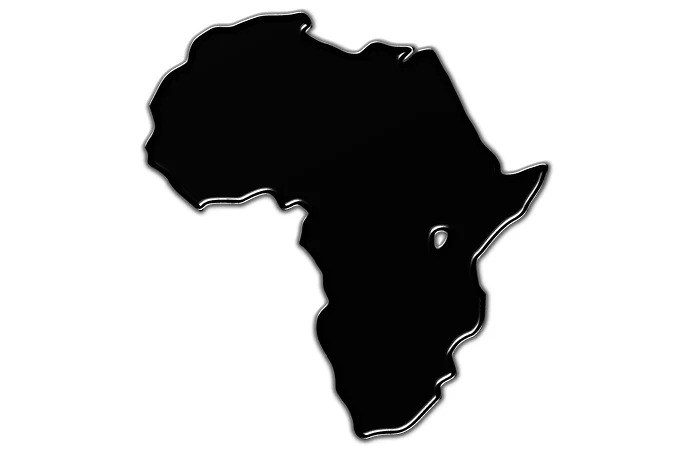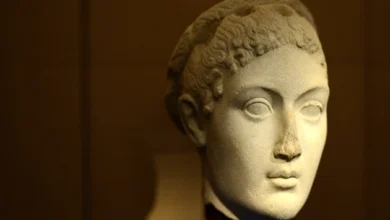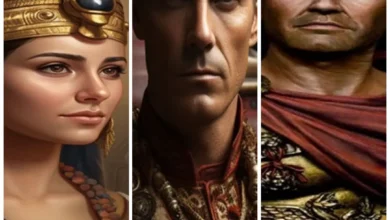Amusing toponyms of some Africa countries

As a result, it’s not unexpected that the names of most African nations are colonial relics. A directional description of the nation, a characteristic of the land, a tribal name, or a prominent person, most frequently a man—nearly every country on the planet is called after one of four things.
Toponyms of some Africa countries
Algeria
Algeria (الجزائر, al-Jaz’ir) is derived from the Arabic term “الجزائر” (al-azir), which means “islands” and has been mangled by Europeans. The bottom line is that Algeria’s old metropolis was built partially on islands that had expanded along with the land by the 16th century, and the nation was called after it.
Angola
The name Angola derives from the term “ngola,” which was given to the king of the state of Ndonga, which was situated in the present-day area of Angola, in the 16th and 17th centuries. The Portuguese conquerors gave the nation its name, which was derived from a native term.
Republic of Benin
Until 1975, Benin was known as Dahomey. The name “Benin” was selected for two reasons: it was the name of the coastal bay, and the Benin Empire was one of Africa’s most powerful kingdoms from 1440 to 1897. Since 1170, Benin’s capital – now known as Benin – has been recognized; before, it was known as Ubini, from which Benin was perverted by the Portuguese.
This term is derived from the Yoruba phrase Ile-ibinu, which means “country of quarrels” or “land of battles.” The Yoruba people at the time were continuously fighting with neighboring tribes and among themselves over this land, thus the name. The term “Dahomey,” like the name of the kingdom that existed before the city of Benin was founded, is much older, and its precise derivation is unclear.
Botswana
Botswana: “Tswana” refers to the people who make up the country’s ethnic majority, and “ba” (“bo” is already a distorted form) signifies “people.” By the way, the Tswana people’s clans (of which there are eight) all begin with the letter “ba”: bakwen, ballet, bamangwato, and so on. I’m not sure where the term “tswana” comes from.
Burkina Faso
Burkina Faso: “Burkina” means “honest” in the sea language, while “Faso” means “home, hometown” in the Diula language. Burkina Faso is therefore translated as “the land of honest people” from two national languages. The nation was given the name “Upper Volta” because of three huge rivers that run across its territory: the White, Black, and Red Volts (and merging into one Volta). The name of the river was provided by the Portuguese, who gave it the name volta, which means “turn, bend.”
Burundi
Burundi means “land of Rundi” in English. Kirundi, for example, is spoken by 6 million people in Burundi. The foundation of all of this is the same term, “Rundi,” which has the same origin as the name “Rwanda,” which was the name of the people who lived in Africa’s southernmost region. The precise origin of the word is uncertain.
Gabon
This name has a straightforward yet colorful origin. The Portuguese (Gabo) named the country after the name of the Como River’s delta. The river’s delta was called by its contours, which resembled a jacket with a hood (in Portuguese – Gabo). This name comes from the Arabic (qab), which also means outerwear in Portuguese.
Gambia
The Gambia gained its name from the same-named river, which was renamed by the Portuguese. The name is derived from the corrupted Portuguese câmbio, which means “deal” or “exchange.” It’s easy to see the Portuguese using the Gambia River as a sea passage – and naming it after it.
Ghana
Ghana obtained independence from the United Kingdom in 1957, and it was formerly known as the Gold Coast. The name “Ghana” was selected in 1960 as a symbol of independence and the country’s historical past since an independent ancient kingdom of Ghana existed on this land between 790 and 1076.
The term “ghana” was the king of the Ghanaian Empire’s regal title. “Ouagadu” or “Wagadou” was the self-name (literally translated from the Mande language “country of fat herds”). However, the kingdom was known in Europe simply as “Ghana,” and it was given that name.
Guinea
Guinea translates to “woman” in the Susu language. The Portuguese (Guiné) named it after one of the first words heard in the local language. Another explanation is that the name is derived from the Berber word Akal n-iguinawen, which means “country of the blacks.” This, however, is quite doubtful.
Guine-Bissau
Guinea-Bissau. Because the Portuguese gave the whole territory the name “Guinea,” the second portion of the region, which obtained independence 15 years later than Guinea (one from France, the other from Portugal), had to add something to the name to distinguish itself. The name of the country’s capital, Bissau, was added. The Portuguese created the city in 1687, by the way. But, for the love of God, I couldn’t uncover the origin of the term “Bissau.”
Djibouti
Djibouti (Arabic: جيبوتي) is called after the lowest point in the Indian Ocean’s Gulf of Aden. The term Gabouti derives from the Afar language (something like a rug at the entrance to the house, made of palm leaves). Another theory is that “Djibouti” is a twisted “Tehuti,” which is the Egyptian moon deity Thoth’s homeland. The original variant, however, is more often used. By the way, it sounds like Yiwuti in several languages.
Egypt
The country’s historical name is Kemet (written in two hieroglyphs – km and t). The first hieroglyph stood for “black,” while the second stood for “earth.” Because of the rich black earth soils in the Nile’s flooded sections, the Egyptians named their country the Black Earth. They were, to put it bluntly, black. This name has been translated into many languages. It appeared like this in ancient Greek, for example. Today, the globe is split into two sections, each of which is referred to as Egypt by a different name.
This name has migrated into different languages. For example, in ancient Greek, it looked like Χημία. Today the whole world is divided into two parts, which are called Egypt by different names. The first part is, in fact, Egypt, Egypt, Ägypten, Egitto, and so on. The way of this word is as follows: French (Egypte) – Latin (Aegyptus) – Ancient Greek (Αἴγυπτος) – Arabic (qubṭī) – and this means “Copt”. The very word “Copt” in this form was borrowed from the Egyptians themselves, from the form Hwt-ka-Ptah (house-soul-Ptah) – this is the name of the temple of the god Ptah in Memphis. The second part of the world calls the country Mısır (Turkish, for example), Mysyr (Kazakh), Mesir, and so on. This name comes from the Semitic Mitzráyim (“two streams”), which goes back to the division of the territory into Lower and Upper Egypt. Subsequently, this word was seriously modified: from it came the root “metro” (“metropolis” in Greece, for example).
Zambia
The Zambezi River is the source of Zambia’s name. I’m sorry, but I’m not sure where this name comes from. Northern Rhodesia was the name given to this region before. Cecil Rhodes (1853-1902), a notable politician, financier, and diamond mogul, was represented by her. He established not just Rhodesia, but also a number of African colleges, as well as a number of funds to aid Africans, and he elevated South Africa to the status of Africa’s wealthiest nation, which it currently holds.
Zimbabwe
Zimbabwe is an African country with a unique name. Dzimba Dza Mabwe is a Shona word that means “huge stone dwellings.” The bottom line is that this region was home to a highly developed Zimbabwean Empire in the fifteenth and sixteenth centuries, whose capital, Great Zimbabwe, was marked by urban stone design. Great Zimbabwe’s stone towers have been maintained and are comparable to the greatest examples of European castles of the period. And the villagers were awestruck by the capital, which they dubbed “Capital.”
Cape Verde
Cape Verde is one of a small set of nations that must be referred to in one manner or another in all languages. In fact, I refer to this nation as the “Cape Verde Islands,” as was the case in Soviet geography. The reality is that when traveling over the yellow and barren Sahara, the Portuguese came upon a green shoreline. Cabo Verde and Cape Verde were the names given to the islands. The rest of the world, on the other hand, ignores conventions and translates this name into its own language.
Cameroon
“Cameroon” is derived from the Portuguese “Rio de Camares” (shrimp river). The Vuri river was given its name by Portuguese sailors in the 15th century because it was teeming with shrimp.
Kenya
Kenya is named from the same-named mountain, which is referred to as Kere-Nyaga in the local language, which means “mountain of whiteness.” That’s all there is to it; the snow is at the top.
Comoros
The Arabs named Comoros (الاتّحاد القمريّ, al-Ittiḥād al-Qumuriyy). Djazair al Qamar translates to “Moon Islands.” The Arab sailors most likely approached them at night.
Democratic Republic of the Congo
We are all familiar with the old moniker “Zaire” for the Democratic Republic of the Congo. The Portuguese bestowed the name “Zaire” to the nation. They twisted the term “nzere” or “nzadi,” which means “major river” or “river of all rivers” in the native language. The name “Congo” stems from the indigenous people’s name, “Bakongo”. In the native language, the term “Congo” denotes “hunter,” as in “bakongo” – “hunters.” In 1997, the nation was given a new name. Probably in order to maximize confusion with its neighbor – the Republic of the Congo.
Republic of the Congo
Look at one of the points above for an explanation of the Congo Republic. Unlike the old Zaire, only this nation has been known as “Congo” from the dawn of time.
Côte d’Ivoire
Another nation that does not allow place names to be translated is Cote d’Ivoire. Côte d’Ivoire means “Ivory Coast” in French. The cause is simple: during colonization, the French extracted ivory here. Elevandiluurannik, Boli Kosta, Marfil Chala, and so on are some of the languages that use this toponym.
Lesotho
The main tribe, the Sotho, was given the name Lesotho, which means “blacks.” Because of European colonization, the article “le” emerged.
Liberia
Liberia is a bizarre nation because it is home to the descendants of runaway and liberated American slaves who have returned to their ancestral homes. Liberia is derived from the Latin word liber, which means “free.” When the American colonies in Africa merged in 1822, the term was formed (and in 1847, they finally freed themselves from US domination).
Libya
Libya is a name that dates back thousands of years. This was the old term for the Berber tribes, and the word may be found in Egyptian hieroglyphs. The derivation of the word is unknown.
Mauritius
The island of Mauritius (Mauritius) was called after Duke of Orange Mauritius of Nassau (Maurice of Nassau, 1567-1625). The bottom line is that a Dutch expedition arrived on the island in 1598 following a series of storms – five ships were sunk, and three proceeded to the island. They also gave the preserving land the name of their lord.
Mauritania
It’s simple to predict what Mauritania means: “country of the Moors.” That is the ancient tribes of Arabs and Berbers who occupied that region. In general, nothing noteworthy.
Madagascar
In the past, Madagascar was known as the “Republic of Malagasy.” As a philatelist, I’ve always been aware of this while inspecting stamps. Let’s have a look at both names. The island is known as Madagasikara in the Malagasy language. This term has its origins in the Proto-Malay language, where it signified “world’s end.” The natives just assumed that there was nothing else on the planet but their little island. The difficulty is that Madagascar was initially populated by immigrants from the lands that are now home to countries such as Malaysia. Their language belongs to the Malay language family. And the people’s self-identification is “Malagasy.” History is quiet on the subject of where it comes from.
Malawi
Malawi translates to “flaming water” in the native language. Because after sunset, the Sun dropped into the waters of the lake, which is now known as Malawi. As a result, the people dubbed their land that. The colony was formerly known as Nyasaland, where Nyasa means “lake” in the indigenous language.
Mali
Mali is named after the ancient African country of Mali, which ruled between the eighth and sixteenth centuries. By the way, the wealthy and powerful (and their current lifestyles are difficult). The Mali term, which means “hippopotamus” or “hippopotamus” in the local dialect, signified the kingdom’s supremacy.
Morocco
Al-Marib is the country’s self-designation. However, the nation is referred to as “Morocco” in various forms in all languages, with only the inhabitants referring to it as “Maghreb.” The Arabic word al-Marib means “west.” That is, this is the kingdom of the west. The term “Morocco” is derived from the name of the city of Marrakech, which in turn is derived from the Berber Mur-Akush, which means “Land of God.”
Mozambique
The omnipresent Portuguese called the nation after the island of Mozambique, where they arrived a bit earlier than in the country proper. However, the island was already known as Moçambique! Where? It’s straightforward. Arab traders had already traded and established there with power and might when the Portuguese arrived in 1498. The Arab merchant Musa Al Big was the island’s major trader and the first “outside” visitor. He named the island after himself, which was taken by the natives (distorted), and then by the Portuguese, who spread the name throughout a much larger region.




